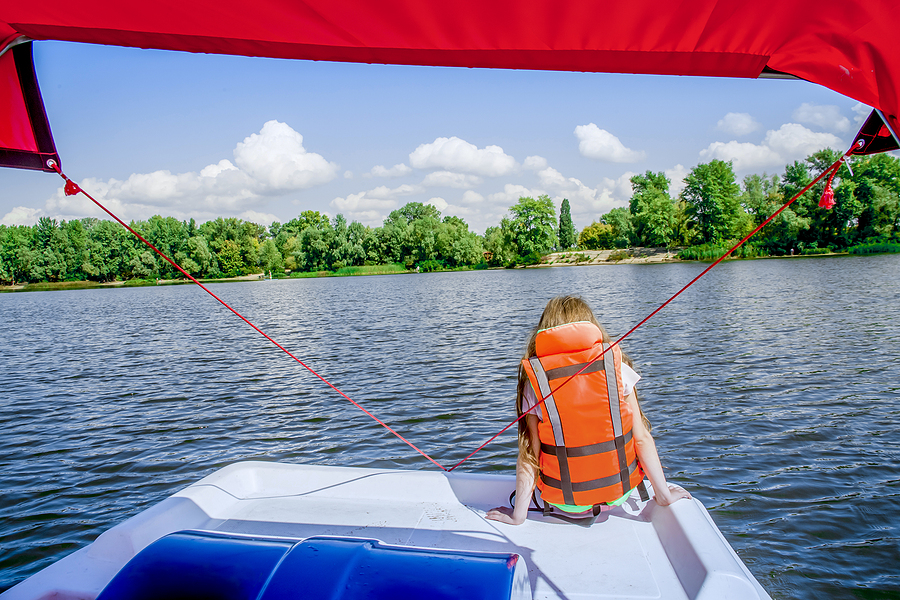Boating is a common pastime in Minnesota, but it can be dangerous if proper safety isn’t followed.

Boating is a great way to relax and enjoy the natural beauty of the outdoors, especially in the Land of 10,000 Lakes. It’s no wonder recreational boating is a $170.3 billion industry that is steadily gaining new participants every year. Whether you’re a long-time enthusiast or a newcomer to the hobby, there are risks involved when using any type of watercraft. Familiarizing yourself with the common injuries and pitfalls can help you to stay safe while you’re having fun.
Unsafe Boating can Cause Serious Injuries
Even when drowning isn’t fatal, it can lead to serious consequences. Oxygen deprivation causes brain damage in a matter of minutes. This can lead to cognitive and emotional impairments like memory loss, uncontrollable aggression, and a variety of learning disabilities. In especially severe cases, a victim of drowning can be left in a vegetative state.
Just like with car crashes, the neck and back can absorb a considerable amount of impact when two boats collide. Some spinal cord injuries that can be caused by a boat accident are herniated disks, ligament tears, and varying degrees of paralysis. Similarly, whiplash is common as the neck is twisted suddenly and harshly.
A variety of electrical components keep boats in motion. When any one of them goes haywire because of a collision or part defect, there is a chance boaters could get electrocuted or severely burned in a fire.
Follow the Rules
If you’re a boat operator who is younger than 18, there are horsepower restrictions you have to follow. An adult 21 or older must supervise you if the horsepower exceeds 25. Regardless of whether you have supervision, 75 is the maximum for minors.
Follow the speed limit. It can vary from place to place, and it can also change based on the time of day. Limits tend to be lower after sunset due to reduced visibility. There are often also limitations on the hours you’re allowed out on the water.
Know What You’re Doing
Before operating a watercraft, complete a boating safety course. It’s best to get some experience under your belt before you venture out alone. Take a friend or family member who is familiar with the waterways as well as the specific watercraft you’re using. He or she can teach you the ins and outs and take over if a tough situation arises.
Becoming a strong swimmer is also a wise precaution to take as drowning is among the top five causes of unintentional death in the United States.
Be Prepared
Have life jackets on board. Not only could it save your life, it’s the law. There must be a U.S. Coast Guard approved life jacket in the right size for each person aboard.
The boat should also be equipped with a floatation device that can be thrown in case a passenger goes overboard.
Keep a first aid kit with you, and replenish supplies regularly. Additionally, you should have both visual and auditory ways to signal distress when you’re in danger.
Know Your Surroundings
Before vehicle operators are allowed on the road, they have to pass a driving test to get a license. That’s not the case with boats. You could be sharing the waters with first timers who don’t have the hang of it. They might slow down, speed up, or change directions suddenly. That’s one reason why it’s wise to keep an eye out for other nearby watercrafts.
Look out for waterway markers. They will help you to steer clear of dangerous areas and guide you in the right direction.
Don’t Drink and Boat
Many boating enthusiasts can’t imagine a day on the water without a cold drink in hand. You’re better off if that drink isn’t alcoholic. Alcohol is the number one contributing factor in fatal boating accidents.
For vehicle operators, Minnesota’s blood alcohol limit is .08. It’s easy to hit that limit after only a few drinks. Limiting your consumption or abstaining altogether as a passenger can help to keep you safe too. You never know when you’ll have to respond to an emergency situation, and that’s easier to do with a sober mind.
Even if you’re not drinking to intoxication, the effects of alcohol can be more impactful during a sunny day spent outdoors. Alcohol and sun exposure both lead to dehydration, making them a bad combination when you’re playing captain. Even mild dehydration can impair cognitive functions, including the ability to focus.
Filing a Boat Accident Injury Claim
If your boat accident injury is a result of another party’s negligence, you can file a claim to recover the damages. Evidence that shows the other party’s actions led to your injuries, for instance proof of speeding or ignoring other safety measures, will strengthen your case.
Should I Contact a Lawyer?
Boating accident cases can get complicated because of all of the potential negligent parties involved. Watercraft operators, rental companies, and manufacturers could be at-fault. Additionally, both state and federal laws may come into play.
The boat accident lawyers at Sand Law are experienced in boating accidents. We have a proven process for thoroughly investigating all prospects so that we can pursue compensation from every avenue possible for you. Contact us online or by phone at 651-291-7263.

